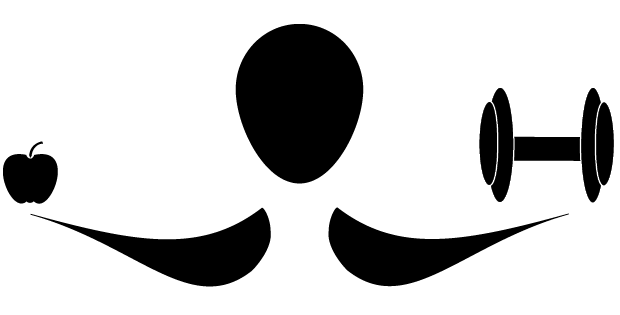Match appropriate diet to achieve your fitness goals
March 3, 2014
No matter what your health and fitness goals are, you can’t get there without a strategic diet plan.
Even if you train hard and often, success is directly related to the quantity and quality of your food.
The most influential aspects of nutrition — as it relates to exercise performance and weight management — are calorie intake and the three macronutrients: carbs, protein and fat. Use these in the right amounts and with the right timing and you’ll see the best results.
Eating around workouts is best. Ingesting protein before and after workouts will aid in muscle repair. Consuming carbs after lifting or extensive exercise will spare muscle tissue from being used for fuel.
“If you’re not eating around [the time you’re] in the gym then you’re just breaking down your body and you’re not getting the benefits that you could [have] building it back up,” said Mitchell Howie, certified personal trainer at the Campus Recreation Center.
Protein and fat intake should remain fairly constant regardless of what type of exercise you do; however, the amount of carbs you need varies. If your workouts are short you don’t need to fill up on carbs.
“If somebody is trying to lose weight and they aren’t exercising for more than 90 minutes, all they need is water because they’re not depleting their glycogen stores,” said Judith Lukaszuk, associate professor of health and human sciences. “[If] they’re exercising for 35, 40 minutes and then they’re taking in a sports beverage [to get carbs], it’s kind of a moot point because it kind of offsets what you just did.”
Mass building lifts, extensive workouts and high-intensity exercises require increased carb intake.
A great way to meet nutritional needs for exercise is through shakes or smoothies. Students can try different versions of these tasty drinks from 4 to 6 p.m. Wednesday in the Recreation Center at Free Smoothie Sampling, hosted by dietetic intern Alicia Huggler.
“The benefits of the smoothies, particularly after exercise, is that they contain sources of protein such as yogurt … milk or peanut butter,” Huggler said. “As far as replacing muscle fuel in the source of carbohydrates, it’s important to get fruits, vegetables or even oats into a smoothie, [so] they’re great for that.”
Calories are important, too. You must have a calorie surplus to gain weight and a calorie deficit to lose weight. This concept is often ignored, leading to unachieved goals.
If you’re trying to burn fat, the best way to do this is by implementing a cardio routine while simultaneously decreasing your calories. This energy shortage from food will give your body incentive to break into fat stores for fuel.
To bulk up and put on muscle mass, your body needs additional calories to put toward rebuilding and increasing muscle size. This makes it essential to eat more calories than you’re burning off in addition to heavy lifting.
You can use online maintenance calculators to estimate your daily calorie needs. From there, you can increase or decrease this number by 500 calories per day to achieve a 1-pound change per week.
Don’t waste your exercise efforts by neglecting your diet. Instead, maximize your workouts with proper nutrition.







